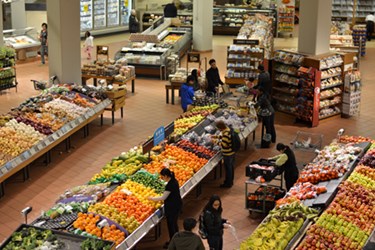What Does "Food Safety" Mean In The Eyes Of The Consumer?

By Sam Lewis

As consumers become increasingly attentive and evermore informed regarding what they eat, so do their ideas of what food safety should mean for food manufacturers. Here, William Thomas, CEO of Thomas Utopia Brand, answers my questions concerning what food safety means for food manufacturers in the age of the ultra-informed consumer.
Food Online: How might food manufacturers gain feedback from consumers regarding food safety and how can that data can be put to practical use?
 Thomas: Food safety initiatives are the result of cooperation between all sectors in the food supply web and consumers are one part of that web. As such feedback and answers come from consumer, questions and concerns and are not only available to the manufacturer directly, but also but from other participants in the process. When all partners — raw material suppliers, distributors, transportation and logistics providers, equipment manufacturers, regulators, retailers, research and product development teams, quality control associates, educational institutions, and others — are included, there is a massive amount of information available. The data can be put to practical use in each of these sectors, but benefits are only seen if the data is shared. It is the responsibility of everyone included in that web to work together, to share consumer feedback, and implement the results to create a food safety culture.
Thomas: Food safety initiatives are the result of cooperation between all sectors in the food supply web and consumers are one part of that web. As such feedback and answers come from consumer, questions and concerns and are not only available to the manufacturer directly, but also but from other participants in the process. When all partners — raw material suppliers, distributors, transportation and logistics providers, equipment manufacturers, regulators, retailers, research and product development teams, quality control associates, educational institutions, and others — are included, there is a massive amount of information available. The data can be put to practical use in each of these sectors, but benefits are only seen if the data is shared. It is the responsibility of everyone included in that web to work together, to share consumer feedback, and implement the results to create a food safety culture.
Food Online: What is the overarching theme of food safety to consumers? What are you noticing consumers are most concerned about?
Thomas: There is a growing concern about the safety of food products and ingredients sourced worldwide. Some of these concerns are justified and some are not well-informed. As manufacturers, we source ingredients from other countries, which makes us responsible for the safety of the ingredients we are adding to our products. Food safety incidents affect all of us in the industry, whether or not our individual companies are involved. GFSI is critical in bridging the gap between different international food safety standards and to build consumer confidence. The average consumer is not well-informed about GFSI and its standards that have been put into place to ensure safe food globally. It is our responsibility to better communicate what is being done on their behalf.
Food Online: What best practices can food manufacturers follow to better align internal food safety ideals with consumer expectations?
Thomas: To align internal food safety ideals in any organization with consumer expectations requires a change in the culture within the business. It is not simply about following the rules. It has to be deeper and become the culture of the business. It is not just about the individuals directly involved in the production of the finished product. It must be on the minds of management, accountants, finance, warehousing, maintenance, and everyone in between. In other words, everyone in the company must be invested to the level of it becoming the culture of the business. Food safety is a consideration in the collective mind of every department and every individual and as such cannot help but be in every product.
About William Thomas
William Thomas is CEO of Thomas Canning (Maidstone) Ltd., a tomato processing company located in Ontario, Canada. He is also CEO of Utopia Integrated Fine Foods of Africa located in Abuja, Nigeria. Mr. Thomas is VP of Thomas Canning (Maidstone) Ltd, the first and largest processor of canned organic and climate smart tomato products in Canada and sold around the world. He has built organic production principles, practices and technology for tomatoes both in the field and the processing plant where none existed before. He is an expert in all aspects of sustainable tomato production, packaging, distribution, quality, and food safety. William has, and continues, to support the food industry through speaking engagements for various industry and non-industry organizations, as well as government functions.
He has over forty years of experience in all aspects of agricultural production and processing including sales, marketing, and management. During his career, he has held positions of teaching responsibility in universities, government, business, and industry associations. He has worked with and assisted small family-owned businesses to multi-national corporations worldwide, with diverse production and distribution channels including retail, wholesale and food service. William has a Bachelor’s degree in Food Science and a Masters from the University Of Guelph, Ontario, Canada.
